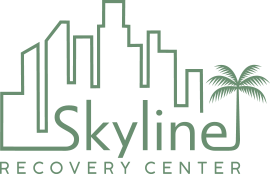Living with someone who struggles with alcoholism can be incredibly challenging. It doesn’t just affect the person drinking. It shakes the very foundation of the family.
According to the National Institute on Alcohol Abuse and Alcoholism (NIAAA), approximately 10.5% of U.S. children aged 17 and younger, about 7.5 million children, live with a parent who has an alcohol use disorder (AUD).
You may feel helpless, lost, or overwhelmed trying to support someone while also taking care of yourself. Families can recover, rebuild trust, and strengthen their relationships with the right tools and support.
Let’s explore how alcohol impacts families and how you can start to heal together.
What is Alcoholism?
Alcoholism, also known as alcohol use disorder (AUD), is a chronic disease where someone loses control over their drinking. It’s not just about having a few drinks too many. It’s about relying on alcohol to function or cope with everyday challenges.
If you’ve ever wondered how does drug and alcohol abuse affect families, it’s a tough reality. Alcoholism doesn’t just impact the person drinking. It has a ripple effect on the entire family.
Signs Someone Might Be Struggling
Here are some common signs to look out for:
- Drinking More than Intended: They may start with the idea of just having a drink or two, but before you know it, they’re drinking more than they planned, more often.
- Inability to Stop: Even if they’ve tried to cut back or quit, they find themselves unable to control their drinking, often leading to feelings of guilt or shame.
- Neglecting Responsibilities: Alcohol becomes their priority, and they may begin missing work, school, or important family events because of their drinking.
- Physical Symptoms: Over time, alcohol abuse can show physical signs such as tremors, slurred speech, or even withdrawal symptoms like sweating, nausea, or anxiety when they aren’t drinking.
- Mood Swings or Aggression: Alcohol can dramatically affect mood, making someone more irritable, anxious, or aggressive, especially when they don’t have access to alcohol.
- Drinking to Cope: If alcohol is used to cope with stress, anxiety, or other negative emotions, it’s a sign of unhealthy drinking behavior.
- Hiding the Problem: They may start hiding their drinking habits, lying about how much they drink, or hiding bottles to cover up the problem.
How Does Alcohol Abuse Affect Families?
Alcoholism can tear families apart. Loved ones of someone struggling with alcohol abuse often experience stress, anxiety, and frustration. Alcoholism can lead to broken relationships, financial instability, and emotional turmoil.
Some of the consequences of alcoholism on the family are:
Emotional Stress
Loved ones often carry the emotional burden of seeing someone they care about struggle with addiction. This can lead to feelings of sadness, anger, guilt, and helplessness. Family members may also experience anxiety or depression due to the constant worry about the individual’s well-being.
Relationship Breakdown
Alcoholism can create tension and conflict in relationships. Trust is broken, communication falters, and families can become divided. In many cases, the addict may neglect their family responsibilities, causing feelings of abandonment or resentment.
Financial Strain
Alcoholism can lead to financial problems due to excessive spending on alcohol or missed work. Families may face mounting medical bills, legal fees, or the loss of income, which can cause additional stress and strain within the household.
Negative Impact on Children
Children in families affected by alcoholism are often the most vulnerable. They may experience neglect, emotional trauma, and behavioral issues. The risk of developing substance use problems is higher for children of alcoholic parents.
Enabling Behavior
Family members may inadvertently enable alcohol use by covering up the behavior, making excuses, or bailing the person out of trouble. This only perpetuates the cycle of addiction and delays recovery.
Chronic Stress
The constant uncertainty about the future or the person’s health creates a toxic environment for families. It can take a toll on everyone’s well-being, contributing to long-term stress and a breakdown in family bonds.
Isolation
The stigma surrounding alcoholism can lead to feelings of isolation. Family members may avoid discussing the issue with others or seeking support, feeling ashamed of the situation. This can make it harder to get the help they need.
How Does Alcohol Abuse Affect Relationships?
From strained relationships to emotional distress, the consequences extend far beyond the individual with alcohol addiction. Here’s how alcohol abuse can affect relationships and the people involved.
- Alcohol abuse can lead to lies, broken promises, and betrayal, causing a loss of trust between partners, friends, and family members.
- The emotional toll of dealing with an alcoholic can create distance, leading to feelings of isolation or neglect.
- Alcohol abuse often leads to arguments, mood swings, irritability, and escalating conflicts, which makes it harder to communicate effectively.
- Alcoholics may fail to fulfill their roles in the relationship, such as providing emotional support, financial stability, or caregiving, which can strain relationships.
- Excessive drinking often leads to financial problems, such as spending too much money on alcohol, missing work, or legal issues, putting pressure on the relationship.
- Family members or friends may enable the abuser’s behavior by making excuses or covering up, which prolongs the addiction and damages the relationship further.
- The stress of living with someone who abuses alcohol can lead to anxiety, depression, and emotional trauma for those involved.
How Can Families Heal and Recover from the Impact of Alcoholism?
Alcoholism has far-reaching consequences that impact not just the individual but the entire family. Healing from the emotional, physical, and financial effects of alcoholism requires time, patience, and the right support.
Here are steps families can take to begin their recovery journey and rebuild their relationships:
- Create Open Communication to Heal from Alcoholism
- Set Boundaries to Protect Family Dynamics
- Seek Family Therapy to Address Alcoholism’s Impact
- Join Support Groups for Families Affected by Alcoholism
- Encourage Treatment for Alcoholism
- Prioritize Self-Care for Family Members
- Be Patient with the Recovery Process
What Are the Long-Term Effects of Alcoholism on Families?
Alcoholism has lasting effects that extend far beyond the individual struggling with addiction. Emotional trauma is common, as family members often experience feelings of anger, anxiety, and guilt, which can linger long after the addiction has been addressed.
Over time, trust and communication break down, leading to strained relationships and even permanent damage between family members. The financial strain caused by the cost of alcohol, missed work, and medical bills can lead to long-term instability for the family.
For children, growing up in an alcoholic household often results in mental health challenges, neglect, and behavioral issues that can last into adulthood. Chronic stress from constantly dealing with unpredictable behavior and worrying about a loved one’s well-being can lead to physical health problems in family members.
Lastly, the generational impact of alcoholism is significant, as children of alcoholics are at a higher risk of developing addiction themselves, perpetuating the cycle.
Despite these challenges, recovery is possible. With the right treatment, therapy, and support, families can heal and rebuild stronger relationships while breaking the cycle of addiction.
Ready to Heal and Rebuild?
At Skyline Recovery Center, we understand how alcoholism affects families. If you or a loved one is struggling, we’re here to provide a supportive, safe space for recovery.
Reach out today to learn how we can help you rebuild stronger, healthier relationships and start the journey toward lasting sobriety. Together, we can heal.


